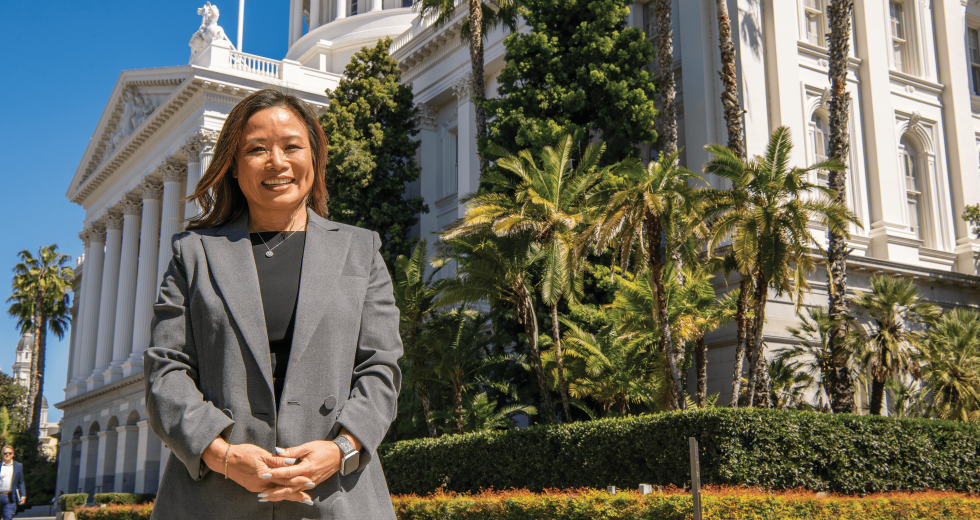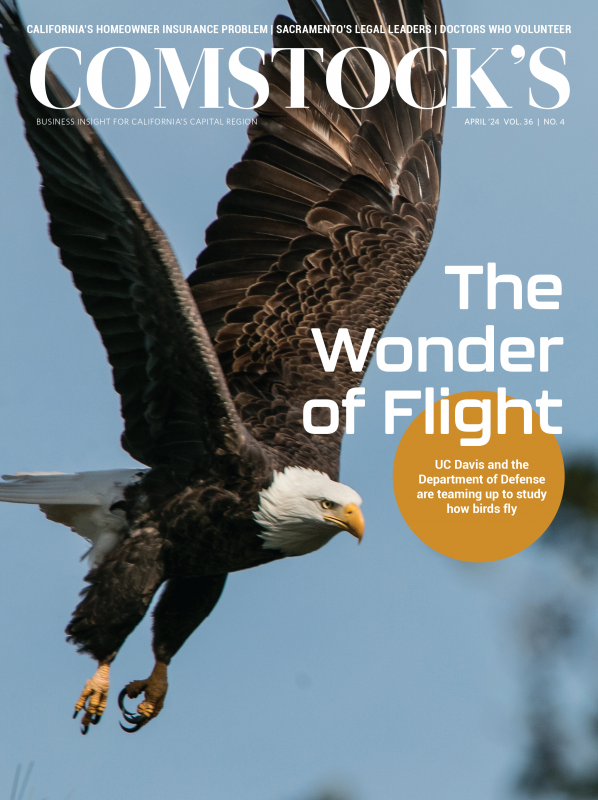Peter Kyung had an assignment in his class at Earl Warren Elementary School. Kyung got assigned to reach out to a person in an industry he could see himself working in. He was interested in becoming an attorney, but neither he nor his parents, who’d emigrated from South Korea and settled in south Sacramento, really knew anyone in the field.
So Kyung reached out to University of the Pacific McGeorge School of Law. His request made its way to John Sims, a professor at the school at the time, which was about 25 years ago. Sims wound up speaking to Kyung’s class.
“I just almost never say no, just because I like to do this,” says Sims, who is now an emeritus professor and works part time for the school.
Kyung’s request would be the start of a long association between him and Sims, which underscores Sacramento’s strength as a legal community.
Between schools like McGeorge and UC Davis School of Law, as well as an array of respected firms, the state Capitol and various courts including a federal courthouse, the Sacramento region is a strong draw for the legal industry.
It’s the sort of place a person like Kyung would never have to leave to find their dream.
Getting a legal education
The day Sims visited Earl Warren Elementary School to talk to students, he stuck around to chat with Kyung. “We got to talk one on one,” Kyung says. “He just sat there and asked me questions and wanted to get to know me.”
The two reestablished contact when Kyung was a UC Davis undergraduate. At some point, Kyung began to consider law school. Sims encouraged him to come to McGeorge. On the strength of his mentor’s advice, Kyung did just that, though it wouldn’t have been his only option locally.
Davis’ law school, which is tied for 60th in rank by U.S. News & World Report, counts alums like longtime Sacramento attorney Stephen Boutin, who remembers it being billed the Harvard of the West. “It was collaborative rather than cutthroat, which makes it unique in the law school universe,” Boutin says.
McGeorge, which is celebrating its 100th birthday this year, is further down in the rankings, tied for No. 141, though it offers some unique benefits.
Former Sacramento City Councilwoman Angelique Ashby, who now serves in the California State Senate, says she opted for McGeorge in part because she was a young, single mother and worked during the day. “McGeorge had a night program, which made it possible for me,” says Ashby, who sometimes brought her son, Nate, to class. The student association even gave Nate a mini-diploma when Ashby graduated.
The school also had instructors like U.S. Supreme Court Justice Emeritus Anthony Kennedy, who grew up in Land Park and practiced law locally beginning in the 1960s.
Any local attorney who went to the school is bound to have a story related to the justice emeritus. Charles Trainor, a veteran real estate attorney in the Sacramento area, had Kennedy for constitutional law in the 1970s. “The whole semester, (he) never brought a note,” Trainor says. “And by the third class, he knew everybody’s name in the class.”
Ashby took part in the Anthony M. Kennedy American Inn of Court for students and legal professionals. Thien Ho, now district attorney for Sacramento County, dropped in on Kennedy at his Washington, D.C., chambers while Ho was in town for a mock trial competition as a McGeorge student.
McGeorge Dean Michael Hunter Schwartz says Kennedy taught a summer program in Salzburg for the school until the pandemic and remains in regular touch.
Lincoln School of Law is less heralded than McGeorge or Davis, though it also puts out respected lawyers, such as former Sacramento County District Attorney Jan Scully and personal injury lawyer Anh Phoong. The school’s dean, Filomena Yeroshek, says Lincoln students are 32 years old on average, with around 90 percent working full time.
“I love watching our graduates feel like they’ve accomplished their dream,” Yeroshek says. “I talk to them at the beginning about it being a marathon. And they have a lot of obstacles; they’re really resilient.”
Working for a private firm
Betty Williams, president of the California Lawyers Association, says Sacramento has no shortage of legal work. She notes figures from the California State Bar’s website showing 8,600 active attorneys in the county and another 2,200 that are inactive. “I think that there’s every area of law in Sacramento,” Williams says. “Maybe something more niche, like sports and entertainment might have fewer attorneys.” To Williams, the proximity to the Capitol ranks among Sacramento’s strengths in the legal industry, as does the lower fees local firms might charge compared to firms located elsewhere. “I think sometimes people prefer not paying the $2,000 an hour rate,” Williams says. “Maybe that’s an exaggeration. But I mean, there are attorneys that charge well over that.”
For those students who want to work privately, a bevy of well-regarded local firms offer a chance to do meaningful work locally.
Weintraub Tobin has the largest general corporate practice of any firm based locally, according to its managing shareholder Gary Bradus.
Jan Robinson Fleener, managing partner for the largest firm based locally, Downey Brand LLP with 105 attorneys, says the firm was a pioneer in water and natural resource law.
Still, local firms sometimes struggle to draw fresh talent, with UC Davis law school dean Kevin Johnson saying just 20 percent of alums work locally.
Russell Austin, a partner at Murphy Austin, which specializes in financing and transactional law, acknowledges it’s a “never-ending challenge” for local firms to recruit, due in part to San Francisco and Los Angeles firms being able to pay substantially more.
Peter Kyung got into law after an attorney spoke to his class. A
graduate of McGeorge, he now runs the Kyung Immigration Law
Office in Sacramento.
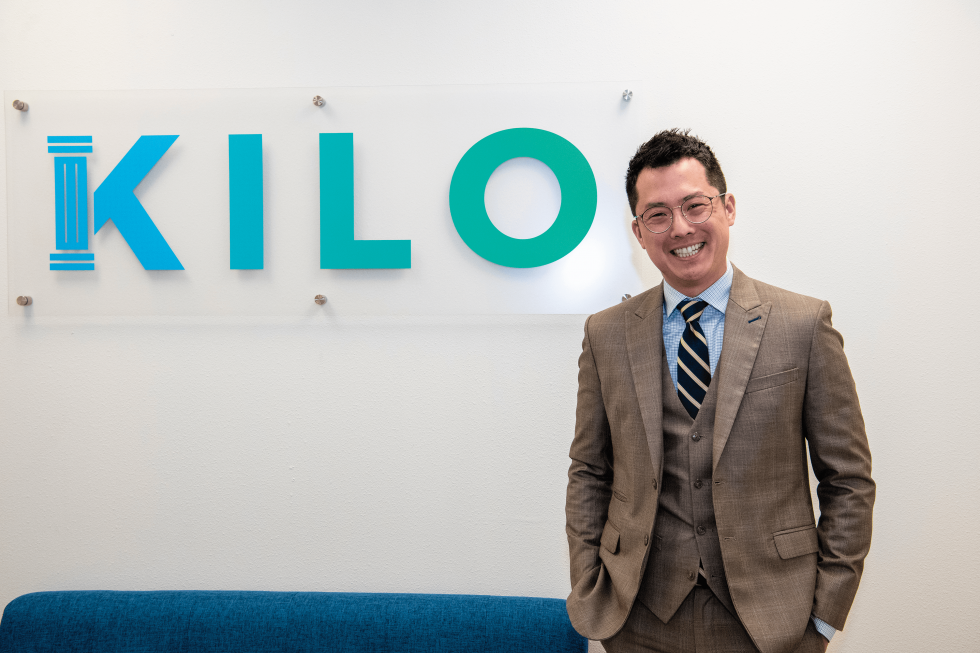
The grass isn’t always greener in larger markets, though. Bradus says new graduates commonly leave major firms in big cities within 2-4 years. “All they’re doing is working,” Bradus says. “They pay off their student loans, and then they’re like, ‘Okay, well, now I want to live.’”
Fleener says Downey Brand sees plenty of attorneys either from Sacramento or who went to law school locally who tire of working elsewhere. “When they’re ready to come home to Sacramento and find a more affordable place to live, we can often scoop them up,” Fleener says.
Ho says he’s worked in the Bay Area and Southern California. “What I can tell you is the best place to practice is in Sacramento,” says Ho, who cites factors like the region’s professionalism and congeniality.
Carl Fessenden, managing shareholder at Porter Scott, is struck by the more relaxed atmosphere in Sacramento’s legal community, too. “Not that we don’t have our disagreements and fights, it’s that usually those things get resolved in a collegial manner,” Fessenden says. “And that is a little bit unique in Sacramento.”
Marisa Gonzalez, 28, grew up with a father who’d emigrated from Mexico and instilled a strong work ethic in her. She opted for McGeorge after graduating near the top of her high school class, going to UC Irvine on an athletic scholarship and considering becoming a doctor. But she sought a firm where she wouldn’t be required to bill 2,000 hours annually.
“I was looking for a firm that values me as a person and would allow me to have a life outside of my job,” says Gonzalez, now an associate at Boutin Jones. “But I also wanted to do serious legal work.”
Working in the public sector
Of course, when a person finishes law school and goes to work in Sacramento, the private sector isn’t their only option. Sacramento has been and might always be a government town as California’s capital. And this is a boon for the local legal profession.
“There are a lot of jobs here for people who understand law,” Ashby says.
California Assemblywoman Esmeralda Soria, who went to law school at Davis, finds her legal training helpful both for writing policy and reading what her colleagues propose. “Being able to have the skill of legal analysis; I think it’s critical,” Soria says.
Cara Jenkins went to McGeorge after working in corporate communications. Today, she serves as the state’s legislative counsel, with her office reviewing every bill that goes through the legislature. “I absolutely love what I do now,” Jenkins says. “And I obviously couldn’t do this anywhere else.”
The capitol is far from the only game in town, though.
Ho says the Sacramento DA’s office has 74 attorneys who graduated from McGeorge, 14 from Davis and four from Lincoln School of Law. Around 30 percent of people in the office are former students of Ho, who taught at the school for 17 years.
Near the western edge of downtown in the Railyards, the $514.7 million Tani Cantil-Sakauye Sacramento County Courthouse, named after the former California Supreme Court chief justice and Sacramento native, is scheduled to open in October.
Across the street, the Robert T. Matsui Courthouse, named after the late congressman, houses the United States District Court for the Eastern District of California. It’s a busy district with prominent past cases including Ted Kaczynski, more commonly known as the Unabomber.
William Shubb, 85, is a senior judge for the Eastern District. He continues to work, sentencing Sherri Papini in 2022 to 18 months in federal custody for faking her kidnapping in a case that drew national headlines. He’s gone a different direction than Kennedy, who is around the same age, retired in 2018 and has been writing a memoir in recent years. Shubb doesn’t seem to mind.
“The thing about appellate judges is that privately, they all wish they were trial judges,” Shubb says. “This is where the action is.”
In his 14th floor chambers, Shubb keeps a slim local legal directory from 1969, which speaks to simpler times for Sacramento’s legal community. The directory has a picture of a young Kennedy, then working with two partners at a firm on Capitol Mall. It also includes bygone legends like Nathaniel Colley, who isn’t just praised by Shubb.
“Nathaniel Colley could take over a courtroom like no other attorney I have seen in my 52 years of going into courtrooms,” Boutin says.
Shubb is skeptical of Sacramento’s importance as a legal hub, saying he disproportionately gets attorneys from Los Angeles or the Bay Area in civil cases. But he concedes there might be something to the city having the Eastern District courthouse, which by federal statute must be in Sacramento, Fresno or Redding.
He remembers Sacramento’s hopes to build a transportation hub at the Railyards and how it helped draw the Matsui courthouse from its previous location at 7th and Capitol. “We would be the gateway between the transportation hub and the civic center,” Shubb says.
Then, as now in Sacramento, the law is big business.
Finding his place
After passing the California State Bar examination in 2011, Kyung initially went to work with a partner. Today, he runs the Kyung Immigration Law Office on Alhambra Boulevard, where he averages a 4.9-star rating on Google and five stars on Yelp.
So many years on from speaking to Kyung’s elementary school, Sims is happy to see where life’s taken his mentee. “He knew what he wanted to do, and he just kind of marched along,” Sims says.
Kyung doesn’t want to practice anywhere but Sacramento.
“I just love what I do,” Kyung says. “I love the people that I serve. I love the cases that I take on. And I go into work really happy that I’m doing exactly that.”
Get all the stories in our annual salute to women in leadership delivered to your inbox: Subscribe to the Comstock’s newsletter today.
Recommended For You
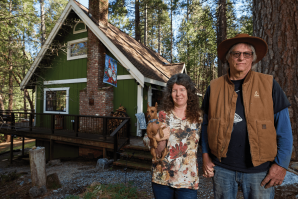
The Soaring Cost of Homeowners Insurance
High prices and carriers leaving the state send homeowners scrambling to protect their homes
California’s insurance crisis is damaging the housing market and more. Will legislators fix it before the next big blaze?

Fly Like an Eagle
The UC Davis California Raptor Center and the Department of Defense are teaming up to create the next generation of unmanned aircraft technology
The new center will utilize motion capture and photogrammetry — which uses photography to determine the distance between objects — to image birds in flight and create 3D models of the wing shapes that will help design uncrewed aerial systems, or UAS.
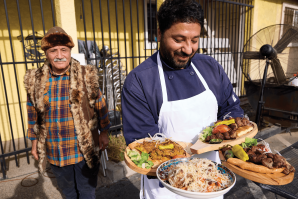
Photo Essay: Afghans Resettling in Sacramento
The Capital Region is home to more than 10,000 Afghan refugees who fled the Taliban. Comstock’s brings you a few of their stories.
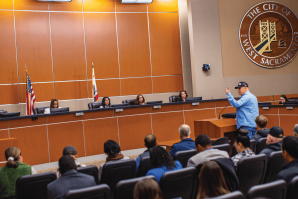
Women Who Represent
More women are running for office and getting elected
The most recent election for West Sacramento City Council has marked a move toward equity — particularly when it comes to female representation. For the first time in history, West Sacramento has an all-female city council and mayor, who are also all women of color.
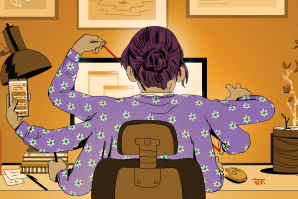
Dilemma of the Month: Can Someone Work Two Full-Time Jobs?
Evil HR Lady says it’s a fine line for hourly employees, but
it’s not illegal.



